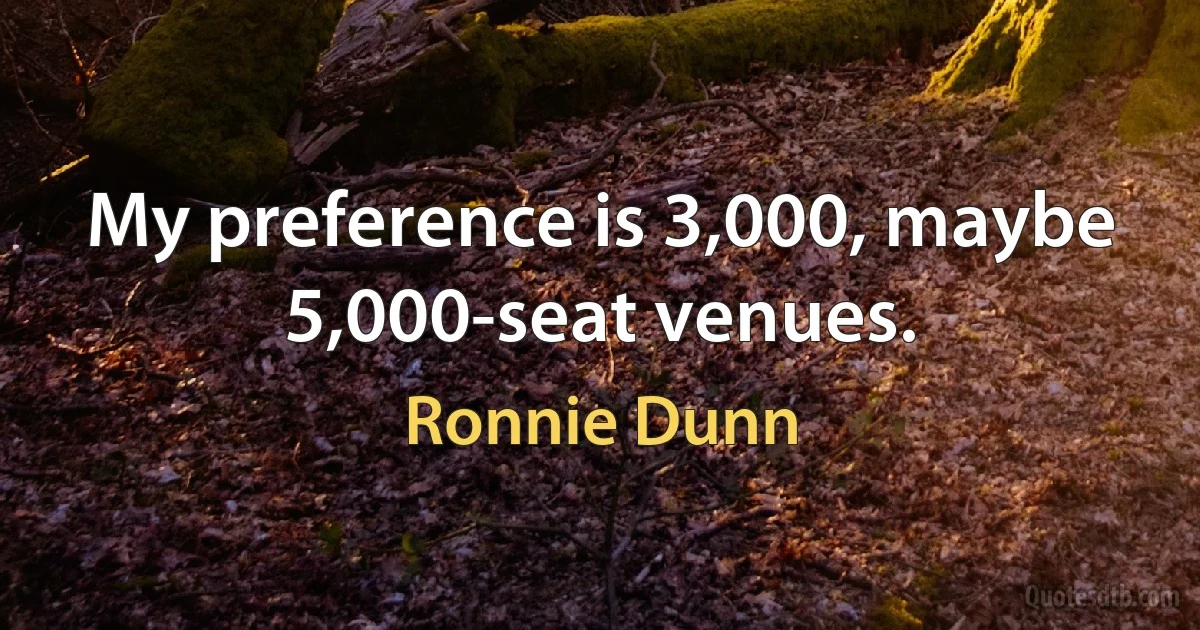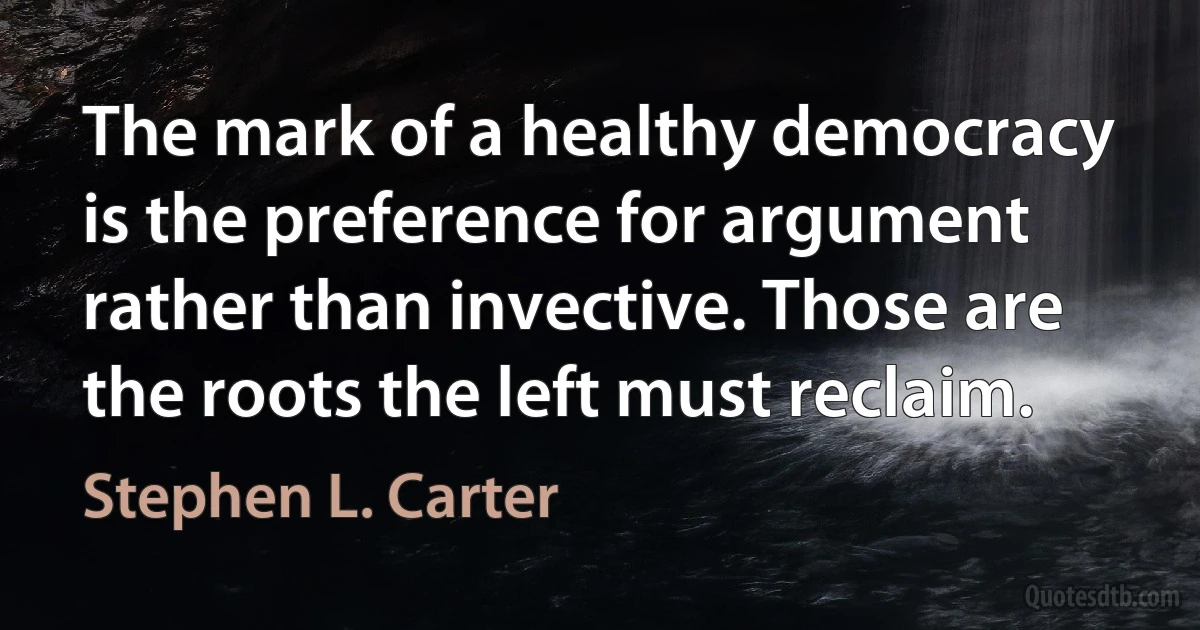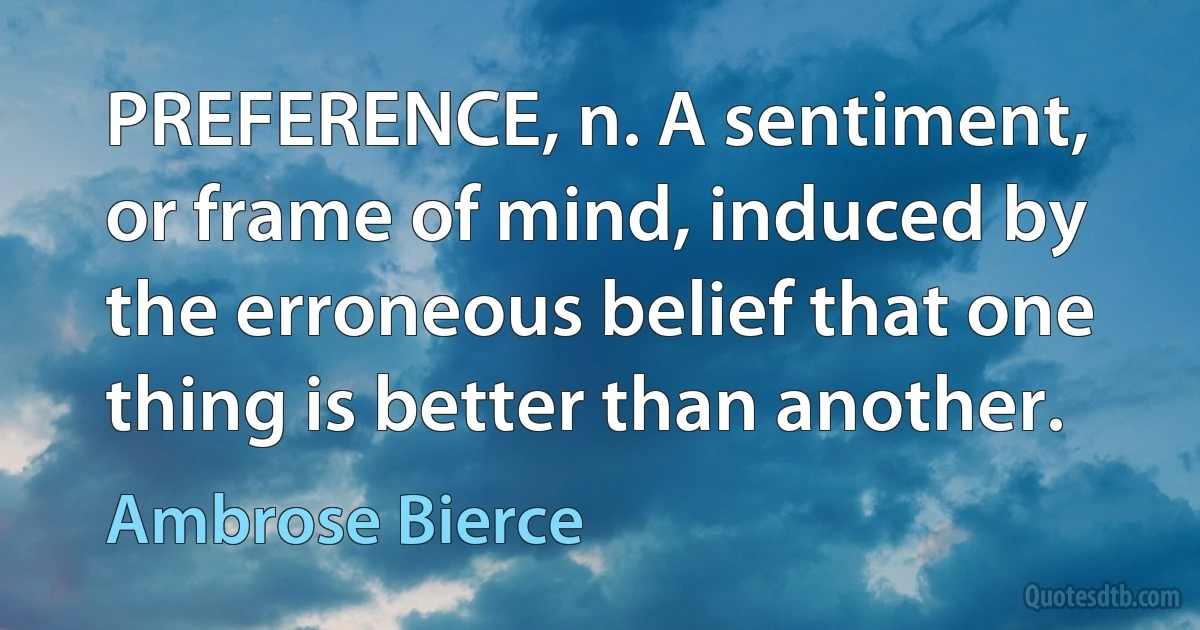Preference Quotes - page 6
A human life, I think, should be well rooted in some spot of native land, where it may get the love of tender kinship for the face of earth, for the labours men go forth to, for the sounds and accents that haunt it, for whatever will give that early home a familiar unmistakeable difference amidst the future widening of knowledge: a spot where the definiteness of early memories may be inwrought with affection, and kindly acquaintance with all neighbours, even to the dogs and donkeys, may spread not by sentimental effort and reflection, but as a sweet habbit of the blood. At five years old, mortals are not prepared to be citizens of the world, to be stimulated by abstract nouns, to soar above preference into impartiality; and that prejudice in favour of milk with which we blindly begin, is a type of the way body and soul must get nourished at least for a time. The best introduction to astronomy is to think of the nightly heavens as a little lot of stars belonging to one's own homestead.

George Eliot
This transitional group does not have a particular preference for thinking or feeling, but believes that one cannot do without either the one or the other. At any rate, it is unprejudiced enough to wish for a better understanding between the two parties... It is clear that feeling and understanding are not necessarily opposites but that they complement each other.

M. C. Escher
The prisoners who saved themselves were not the best, the predestined to good, the bearers of a message: what I had seen and experienced showed the exact opposite. Survived the worst of preference, the selfish, the violent, the insensitive, the collaborators of the 'gray area', the spies. It was not a certain rule (there were, nor are there in human affairs, certain rules), but was also a rule. I felt so innocent, but trooped among the saved, and therefore constantly looking for an excuse, before me and the others. Survived the worst, that is the most suitable; the best are all dead.

Primo Levi
The only thing that really matters is that there be an action of goodness, love and intelligence in living. Is goodness individual or collective, is love personal or impersonal, is intelligence yours, mine or somebody else? If it is yours or mine then it is not intelligence, or love, or goodness. If goodness is an affair of the individual or of the collective, according to one's particular preference or decision, then it is no longer goodness.

Jiddu Krishnamurti
The time comes in the life of each of us when we realize that death awaits us as it awaits others, that we will receive at the end neither preference nor exemption. It is then, in that disturbed moment, that we know life is an adventure with an ending, not a succession of bright days that go on forever. Sometimes the knowledge come with the repudiation and quick revolt that such injustice awaits us, sometimes with fear that dries the mouth and closes the eyes for an instant, sometimes with servile weariness, an acquiescence more dreadful than fear. The knowledge that my own end was near came with pain, and afterwards astonishment, with the conventional heart attack, from which, I've been told, I've made an excellent recovery.

William March
Disgust is expressed by violence, and it is to be noted of our intellectual temper that violence is a quality which is felt to have a peculiarly intellectual sanction. Our preference, even as articulated by those who are most mild in their persons, is increasingly for the absolute and extreme, of which we feel violence to be the true sign. The gentlest of us will know that the tigers of wrath are to be preferred to the horses of instruction and will consider it intellectual cowardice to take into account what happens to those who ride tigers.

Lionel Trilling



